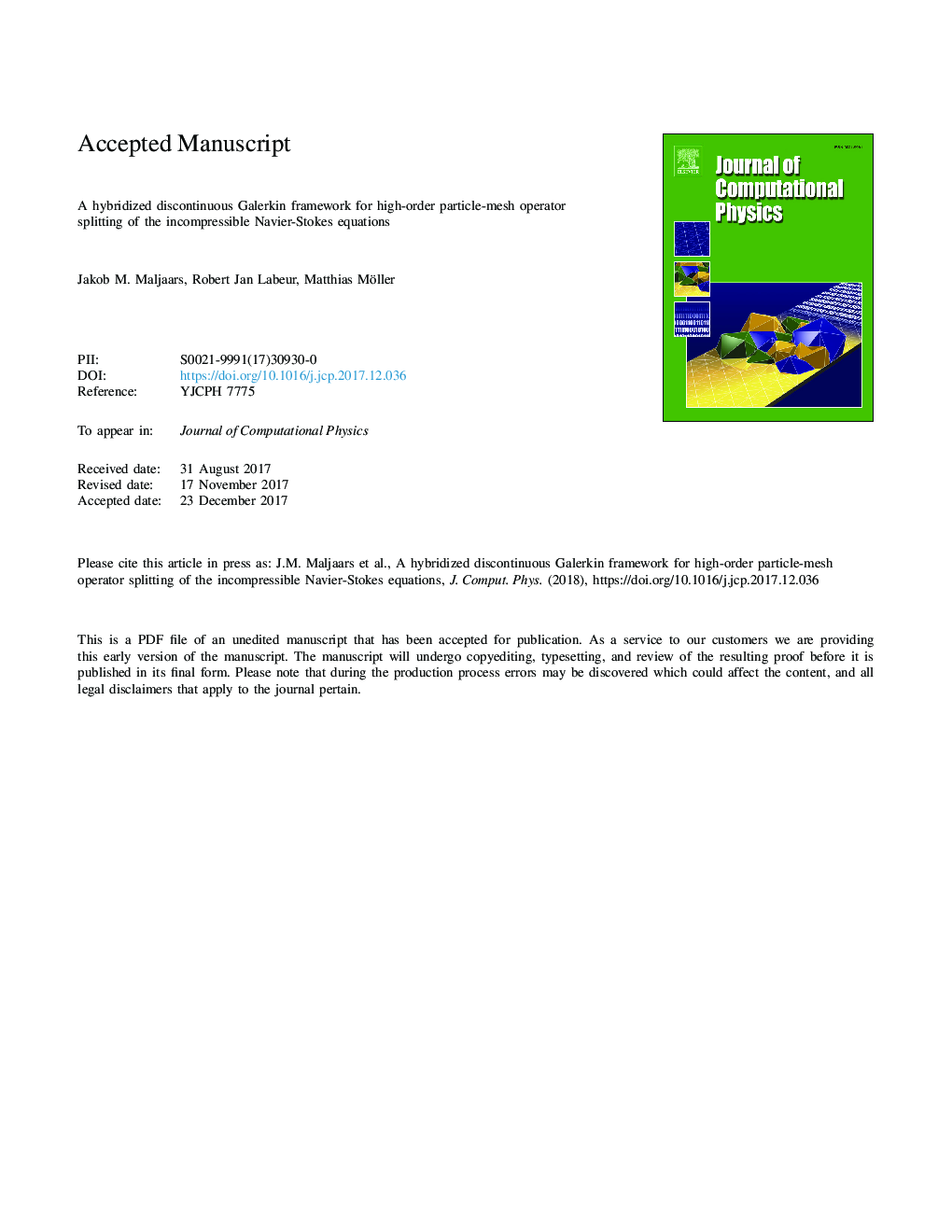| Article ID | Journal | Published Year | Pages | File Type |
|---|---|---|---|---|
| 6929106 | Journal of Computational Physics | 2018 | 37 Pages |
Abstract
A generic particle-mesh method using a hybridized discontinuous Galerkin (HDG) framework is presented and validated for the solution of the incompressible Navier-Stokes equations. Building upon particle-in-cell concepts, the method is formulated in terms of an operator splitting technique in which Lagrangian particles are used to discretize an advection operator, and an Eulerian mesh-based HDG method is employed for the constitutive modeling to account for the inter-particle interactions. Key to the method is the variational framework provided by the HDG method. This allows to formulate the projections between the Lagrangian particle space and the Eulerian finite element space in terms of local (i.e. cellwise) â2-projections efficiently. Furthermore, exploiting the HDG framework for solving the constitutive equations results in velocity fields which excellently approach the incompressibility constraint in a local sense. By advecting the particles through these velocity fields, the particle distribution remains uniform over time, obviating the need for additional quality control. The presented methodology allows for a straightforward extension to arbitrary-order spatial accuracy on general meshes. A range of numerical examples shows that optimal convergence rates are obtained in space and, given the particular time stepping strategy, second-order accuracy is obtained in time. The model capabilities are further demonstrated by presenting results for the flow over a backward facing step and for the flow around a cylinder.
Keywords
Related Topics
Physical Sciences and Engineering
Computer Science
Computer Science Applications
Authors
Jakob M. Maljaars, Robert Jan Labeur, Matthias Möller,
